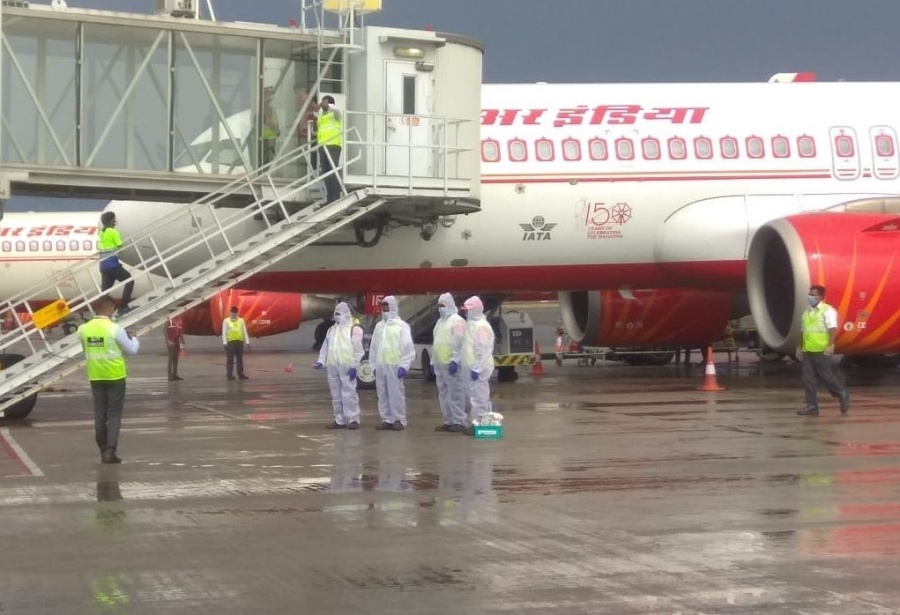The Muttahida Qaumi Movement (MQM) founder Altaf Hussain has appealed to the US Congress to table a bill for the independence of Balochistan and Sindh from Pakistan on the same lines as they introduced a bill on Tibet’s freedom from China.
In his latest statement released on Twitter, Hussain said that the US Congress should table the bill for the sake of the humanity and to save the lives of over 80 million people of Balochistan and Sindh who want independence.
While welcoming the US Congress decision to table a bill on Tibet’s independence, Hussain said he would like to appeal to all the members of the US Congress to also pay attention to the plight of Baloch people of Balochistan province and Sindhi and Urdu speaking people (commonly known as Mohajir) of Sindh province of Pakistan.
He said Baloch and Sindhi men and women are often subjected to enforced disappearances, extrajudicial killings and put behind bars by Pakistan Army and its intelligence agencies. This, he said, has been going on for the last seven decades.
Ninety per cent people in Balochistan and Sindh provinces want independence from Pakistan, he said.
Praising the move of the US Congress for the bill on Tibet, Hussain said, China had mercilessly curbed the basic fundamental rights of the Tibetans for years. “This is the right time for the Dalai Lama to make more efforts for helpless Tibetans,” he added.
The MQM was founded by Hussain in 1984. However, the party split into two factions — MQM London run by Hussain and MQM Pakistan headed by Khalid Maqbool Siddiqui.
Baloch Issue-Pakistan occupied Balochistan in 1948 and after the country became the Islamic Republic, imposed religious laws and culture which have been alien to the ethnic Baloch.
“This was a flagrant intrusion into the Baloch way of life and a blatant denial of the secular and democratic principles to which the Baloch cling. Since the Pakistani government invaded the region, the people of Balochistan have suffered under constant oppression and terror,” Baloch activists said in Geneva.

“The people of Balochistan were never asked whether they wanted to be part of Pakistan. Baloch people never gave their consent to have their territory annexed into the fundamentalist hotbed that is Pakistan.” Despite the people’s peaceful requests for a referendum on the future status of Balochistan, the Pakistani government has denied their right to self-determination.”
The government in Islamabad pushes the narrative that the people of Balochistan are happy with Pakistan.
“This narrative is baseless and demeaning to the actual lived experiences of the Baloch,” BHRC headed by Dr Naseer Dashti and Dr Habibullah Malik, said in Geneva.
Recently, human rights activists have set up a Pavillion named ‘Save the Baloch’ right outside the United Nations Office of Geneva. The BHRC protesters demanded the UN initiate an immediate and thorough investigation into the Pakistani government’s actions in Balochistan and to hold Pakistan accountable for its egregious human rights abuses against the Baloch people.
“Defending the rights of the people of Balochistan is not an option,” it is an obligation. Freedom for Balochistan has been long-delayed, but it cannot and will not be denied,” a protestor said.
State’s Repression-The Baloch have been subjected to state-sponsored repression ever since they had expressed their demand to be free of Pakistan. There was nothing common, be it the language, or culture, or history, between the Baloch and the Punjabi Pakistanis. The Baloch always consider themselves to be a separate nation of people, like the Pathans. They were however forced into submission by Pakistan Army with the West, Britain and US in particular, supporting the new occupier than the people. Since then, Pakistan has been trying, without much success, to convert Balochistan into a subsidiary province, more like a supplier of minerals, gas and other natural resources to Punjab and Sindh.
But the people of Balochistan have been opposing the state project tooth and nail. For that, they have been over the decades terrorised through brutal military means. Thousands have died in the battle for their honour but have refused to kneel down before the military might of Pakistan Army. The army has always viewed the Baloch suspiciously, calling them terrorists and `Indian agents` to justify its kill and dump policy. Thousands of men and women have been abducted and killed and their bodies dumped by the roadside or outside their homes or in mass graves. These graves continue to be discovered in different areas of the province.

The last major offensive against the Baloch was carried out by General Pervez Musharraf who was incensed by the Baloch demand to punish an Army Major for raping a Baloch doctor. The despotic General not only refused to pay any attention to the truth of the army officer brutalising a young Baloch woman, he launched a massive military operation against a popular Baloch leader, Nawaz Akbar Khan Bugti. The Baloch did not want to fight and want to sit across the table to discuss their problems with the government. But Musharraf, drunk with power, was not interested in peaceful dialogue and he surrounded the homes of Baloch leaders with tanks and bombed them with military jets. Hundreds were killed and scores of villages and towns were razed to the ground, forcing the community to retreat into distant shelters.
The assassination of Bugti and his men created an international outcry with the West calling for a UN intervention and punishing sanctions against Pakistan. Since then, the army decided to change the tactics—from an open war against their own people, it made the war more covert. The media was banned from reporting the military operations and instead they were fed with information, false and misleading, about the military operations.








